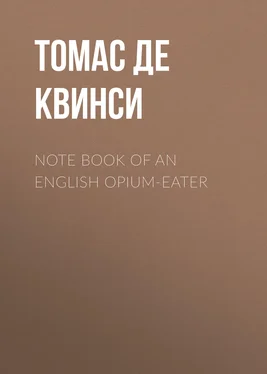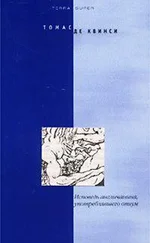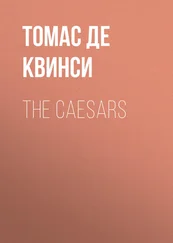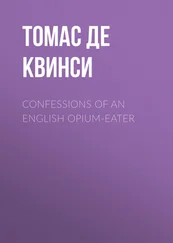Томас Де Квинси - Note Book of an English Opium-Eater
Здесь есть возможность читать онлайн «Томас Де Квинси - Note Book of an English Opium-Eater» — ознакомительный отрывок электронной книги совершенно бесплатно, а после прочтения отрывка купить полную версию. В некоторых случаях можно слушать аудио, скачать через торрент в формате fb2 и присутствует краткое содержание. Жанр: foreign_prose, literature_19, foreign_antique, на английском языке. Описание произведения, (предисловие) а так же отзывы посетителей доступны на портале библиотеки ЛибКат.
- Название:Note Book of an English Opium-Eater
- Автор:
- Жанр:
- Год:неизвестен
- ISBN:нет данных
- Рейтинг книги:5 / 5. Голосов: 1
-
Избранное:Добавить в избранное
- Отзывы:
-
Ваша оценка:
- 100
- 1
- 2
- 3
- 4
- 5
Note Book of an English Opium-Eater: краткое содержание, описание и аннотация
Предлагаем к чтению аннотацию, описание, краткое содержание или предисловие (зависит от того, что написал сам автор книги «Note Book of an English Opium-Eater»). Если вы не нашли необходимую информацию о книге — напишите в комментариях, мы постараемся отыскать её.
Note Book of an English Opium-Eater — читать онлайн ознакомительный отрывок
Ниже представлен текст книги, разбитый по страницам. Система сохранения места последней прочитанной страницы, позволяет с удобством читать онлайн бесплатно книгу «Note Book of an English Opium-Eater», без необходимости каждый раз заново искать на чём Вы остановились. Поставьте закладку, и сможете в любой момент перейти на страницу, на которой закончили чтение.
Интервал:
Закладка:
Thomas De Quincey
Note Book of an English Opium-Eater
THREE MEMORABLE MURDERS
1 1 See 'Miscellaneous Essays,' p. 17.
[1854.]
It is impossible to conciliate readers of so saturnine and gloomy a class, that they cannot enter with genial sympathy into any gaiety whatever, but, least of all, when the gaiety trespasses a little into the province of the extravagant. In such a case, not to sympathize is not to understand; and the playfulness, which is not relished, becomes flat and insipid, or absolutely without meaning. Fortunately, after all such churls have withdrawn from my audience in high displeasure, there remains a large majority who are loud in acknowledging the amusement which they have derived from a former paper of mine, 'On Murder considered as one of the Fine Arts;' at the same time proving the sincerity of their praise by one hesitating expression of censure. Repeatedly they have suggested to me, that perhaps the extravagance, though clearly intentional, and forming one element in the general gaiety of the conception, went too far. I am not myself of that opinion; and I beg to remind these friendly censors, that it is amongst the direct purposes and efforts of this bagatelle to graze the brink of horror, and of all that would in actual realization be most repulsive. The very excess of the extravagance, in fact, by suggesting to the reader continually the mere aeriality of the entire speculation, furnishes the surest means of disenchanting him from the horror which might else gather upon his feelings. Let me remind such objectors, once for all, of Dean Swift's proposal for turning to account the supernumerary infants of the three kingdoms, which, in those days, both at Dublin and at London, were provided for in foundling hospitals, by cooking and eating them. This was an extravaganza, though really bolder and more coarsely practical than mine, which did not provoke any reproaches even to a dignitary of the supreme Irish church; its own monstrosity was its excuse; mere extravagance was felt to license and accredit the little jeu d'esprit , precisely as the blank impossibilities of Lilliput, of Laputa, of the Yahoos, &c., had licensed those. If, therefore, any man thinks it worth his while to tilt against so mere a foam-bubble of gaiety as this lecture on the aesthetics of murder, I shelter myself for the moment under the Telamonian shield of the Dean. But, in reality, my own little paper may plead a privileged excuse for its extravagance, such as is altogether wanting to the Dean's. Nobody can pretend, for a moment, on behalf of the Dean, that there is any ordinary and natural tendency in human thoughts, which could ever turn to infants as articles of diet; under any conceivable circumstances, this would be felt as the most aggravated form of cannibalism—cannibalism applying itself to the most defenceless part of the species. But, on the other hand, the tendency to a critical or aesthetic valuation of fires and murders is universal. If you are summoned to the spectacle of a great fire, undoubtedly the first impulse is—to assist in putting it out. But that field of exertion is very limited, and is soon filled by regular professional people, trained and equipped for the service. In the case of a fire which is operating upon private property, pity for a neighbor's calamity checks us at first in treating the affair as a scenic spectacle. But perhaps the fire may be confined to public buildings. And in any case, after we have paid our tribute of regret to the affair, considered as a calamity, inevitably, and without restraint, we go on to consider it as a stage spectacle. Exclamations of—How grand! How magnificent! arise in a sort of rapture from the crowd. For instance, when Drury Lane was burned down in the first decennium of this century, the falling in of the roof was signalized by a mimic suicide of the protecting Apollo that surmounted and crested the centre of this roof. The god was stationary with his lyre, and seemed looking down upon the fiery ruins that were so rapidly approaching him. Suddenly the supporting timbers below him gave way; a convulsive heave of the billowing flames seemed for a moment to raise the statue; and then, as if on some impulse of despair, the presiding deity appeared not to fall, but to throw himself into the fiery deluge, for he went down head foremost; and in all respects, the descent had the air of a voluntary act. What followed? From every one of the bridges over the river, and from other open areas which commanded the spectacle, there arose a sustained uproar of admiration and sympathy. Some few years before this event, a prodigious fire occurred at Liverpool; the Goree , a vast pile of warehouses close to one of the docks, was burned to the ground. The huge edifice, eight or nine stories high, and laden with most combustible goods, many thousand bales of cotton, wheat and oats in thousands of quarters, tar, turpentine, rum, gunpowder, &c., continued through many hours of darkness to feed this tremendous fire. To aggravate the calamity, it blew a regular gale of wind; luckily for the shipping, it blew inland, that is, to the east; and all the way down to Warrington, eighteen miles distant to the eastward, the whole air was illuminated by flakes of cotton, often saturated with rum, and by what seemed absolute worlds of blazing sparks, that lighted up all the upper chambers of the air. All the cattle lying abroad in the fields through a breadth of eighteen miles, were thrown into terror and agitation. Men, of course, read in this hurrying overhead of scintillating and blazing vortices, the annunciation of some gigantic calamity going on in Liverpool; and the lamentation on that account was universal. But that mood of public sympathy did not at all interfere to suppress or even to check the momentary bursts of rapturous admiration, as this arrowy sleet of many-colored fire rode on the wings of hurricane, alternately through open depths of air, or through dark clouds overhead.
Precisely the same treatment is applied to murders. After the first tribute of sorrow to those who have perished, but, at all events, after the personal interests have been tranquillized by time, inevitably the scenical features (what aesthetically may be called the comparative advantages ) of the several murders are reviewed and valued. One murder is compared with another; and the circumstances of superiority, as, for example, in the incidence and effects of surprise, of mystery, &c., are collated and appraised. I, therefore, for my extravagance, claim an inevitable and perpetual ground in the spontaneous tendencies of the human mind when left to itself. But no one will pretend that any corresponding plea can be advanced on behalf of Swift.
In this important distinction between myself and the Dean, lies one reason which prompted the present writing. A second purpose of this paper is, to make the reader acquainted circumstantially with three memorable cases of murder, which long ago the voice of amateurs has crowned with laurel, but especially with the two earliest of the three, viz., the immortal Williams' murders of 1812. The act and the actor are each separately in the highest degree interesting; and, as forty-two years have elapsed since 1812, it cannot be supposed that either is known circumstantially to the men of the current generation.
Never, throughout the annals of universal Christendom, has there indeed been any act of one solitary insulated individual, armed with power so appalling over the hearts of men, as that exterminating murder, by which, during the winter of 1812, John Williams in one hour, smote two houses with emptiness, exterminated all but two entire households, and asserted his own supremacy above all the children of Cain.
Читать дальшеИнтервал:
Закладка:
Похожие книги на «Note Book of an English Opium-Eater»
Представляем Вашему вниманию похожие книги на «Note Book of an English Opium-Eater» списком для выбора. Мы отобрали схожую по названию и смыслу литературу в надежде предоставить читателям больше вариантов отыскать новые, интересные, ещё непрочитанные произведения.
Обсуждение, отзывы о книге «Note Book of an English Opium-Eater» и просто собственные мнения читателей. Оставьте ваши комментарии, напишите, что Вы думаете о произведении, его смысле или главных героях. Укажите что конкретно понравилось, а что нет, и почему Вы так считаете.












